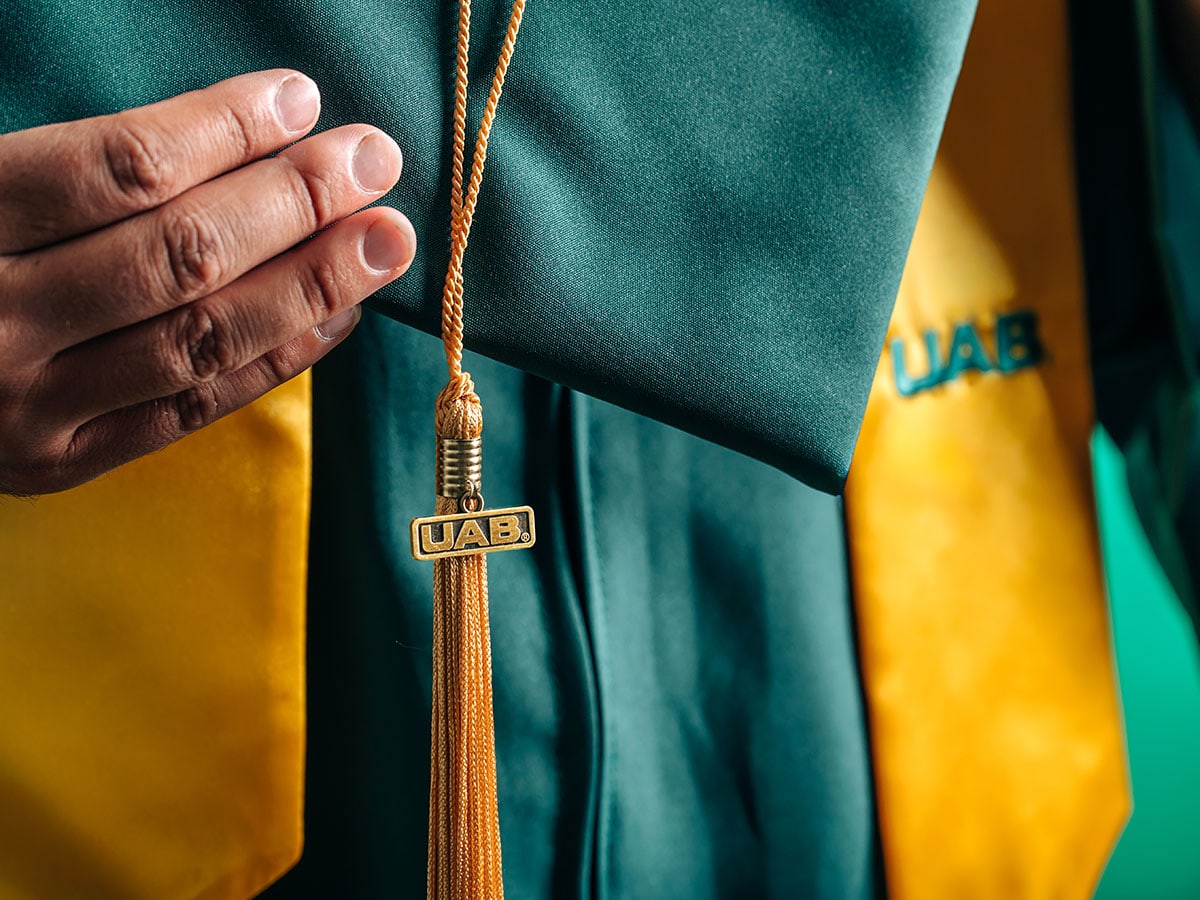
Honors Neuroscience Summer Research Academy group shot: From left to right: Dr. Cristin Gavin, Dr. Scott Wilson, Remy Meir, Cooper Bailey, Mary-Elizabeth Winslett, Stacey Niver, Haley Edwards, Ben Boros, Courtney Walker, Danielle Hurst, Dr. David Knight, and Dr. Rajesh Kana.Participants in the 10-week program are actively conducting research in a primary faculty member’s lab on UAB’s campus and have demonstrated excellence in academic coursework, promise in basic laboratory skills, and expressed interest in further professional development.
Their award provides room and board for the summer and a research award (for the mentors) to support the student's work in the lab.
Eight students are participating in the Honors Neuroscience Summer Research Academy this summer. Four are working in psychology labs and four are working in School of Medicine labs (Neurobiology, Psychiatry and Behavioral Neurobiology, and Neurology).
Here are the stories of the four students working in School of Medicine labs this summer:
Department: Neurobiology
Stacey Niver
This summer, I'm working with Dr. Wadiche in the Department of Neurobiology. Our lab looks at neurogenesis in the dentate gyrus of the adult hippocampus. We're looking to characterize synaptic inputs to newborn granule cells to learn how these newborn neurons are matured and integrated into pre-existing neural networks. Two subtypes of interneuron that we look at, parvalbumin (PV) expressing fast-spiking interneurons and neuronal nitric oxide synthase (nNOS)-expressing Ivy/Neurogliaform neurons, may provide early inputs to these granule cells. This summer I'm ensuring that our mice express channelrhodopsin in these neurons of interest. This specificity of expression allows us to selectively manipulate these populations and see what happens. Since I'm planning on going to grad school, this opportunity to experience full time research and further develop my experimental thinking will be very beneficial in both the applications process and my future career as a scientist. So far it's been very productive and I'm looking forward to the rest of the summer.Department: Neurology
Ben Boros
 Honors Neuroscience Summer Research Academy students in School of Medicine labs, from left to right: Stacey Niver, Haley Edwards, Courtney Walker, and Ben Boros.I am currently doing research on the association between the progression of Alzheimer's disease and alterations in dendritic spines with Dr. Herskowitz in the Department of Neurology. The majority of my current work consists of peering into the lens of a bright-field or confocal microscope and imaging dendritic segments that I later examine. The subsequent dendrite analysis involves assessment of spine density and objective morphological characterization by raw measurements. These studies are conducted in human and mouse brains with a focus on both the pre-frontal and entorhinal cortices. As major hallmarks of AD include memory loss and working memory impairment, alterations in dendritic spines in these critical areas may offer additional insight into understanding AD progression and may allow exploration of therapeutic agents in spine manipulation. The opportunity to continue this research throughout the summer has been invaluable, as working full-time has forced me to make enormous progress and has driven me to truly enjoy my work.
Honors Neuroscience Summer Research Academy students in School of Medicine labs, from left to right: Stacey Niver, Haley Edwards, Courtney Walker, and Ben Boros.I am currently doing research on the association between the progression of Alzheimer's disease and alterations in dendritic spines with Dr. Herskowitz in the Department of Neurology. The majority of my current work consists of peering into the lens of a bright-field or confocal microscope and imaging dendritic segments that I later examine. The subsequent dendrite analysis involves assessment of spine density and objective morphological characterization by raw measurements. These studies are conducted in human and mouse brains with a focus on both the pre-frontal and entorhinal cortices. As major hallmarks of AD include memory loss and working memory impairment, alterations in dendritic spines in these critical areas may offer additional insight into understanding AD progression and may allow exploration of therapeutic agents in spine manipulation. The opportunity to continue this research throughout the summer has been invaluable, as working full-time has forced me to make enormous progress and has driven me to truly enjoy my work.While pursuing medical school had been my only consideration when I first entered UAB, pouring over others' research and generating my own exciting data have pushed me to consider academia. My mentor, lab-mates, and the SRA instructors have provided an enormous amount of support and advice in my future career choices and in my current research projects. Working full time in the lab has only increased my appreciation for research and has moved me to consider pursuing MSTP or PhD programs. Regardless of which avenue I pursue and how favorable my data, my work with Alzheimer's disease, dendritic spines, and microscopy this summer has expanded my understanding of the importance of dendritic spines in neurodegenerative disorders and provided valuable skills with a common laboratory technique.


